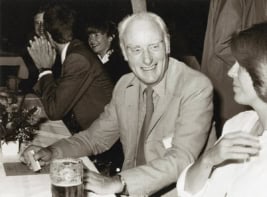Each day this week we are publishing a pair of video interviews with early-career scientists based in the US, who share their thoughts on a range of issues. These 10 scientists were invited delegates at ComSciCon 2017, a national workshop for promising science communicators. In the interviews, researchers discuss their career ambitions and the challenges they face in achieving those dreams. They also discuss a range of issues relating to science communication, diversity in science and the role scientists can play in the current political climate in the US.
First up today is Chani Nava, an astrophysics PhD student who has just finished her first year at Harvard University. Having originally started an undergraduate degree in medicine, Chani switched to a physics programme after coming to understand all the career opportunities that would be open to her. Her plan is to pursue a career in science communication as she feels that the whole science community could do more to effectively translate their research to general audiences.
Also profiled today is Will Chen, who has recently completed a Master’s degree in quantitative ecology at the University of Washington. Will says that his passion for the outdoors developed later than his interest in mathematics, and his degree enabled him to combine the two passions. As well as talking about his career aspirations, Will shares his thoughts on why science is often clashing with people’s personal beliefs in the current political climate. Science communicators, he suggests, need to focus on the tone as well as the content of their messages.
On Monday, we published interviews with materials scientist Grayson Doucette and molecular biologist Khady Sall. Then yesterday, we featured physics educationalist Reggie Bain and ecologist Shannon Bayliss. Stay tuned on Thursday and Friday to hear from more delegates from ComSciCon17.
To hear more voices on the state of science in the US, take a look at the free-to-read Physics World special report on physics in the US. Share your thoughts on the current state of physics in the US by posting a comment below or joining the conversation on Twitter including our handle @PhysicsWorld.



